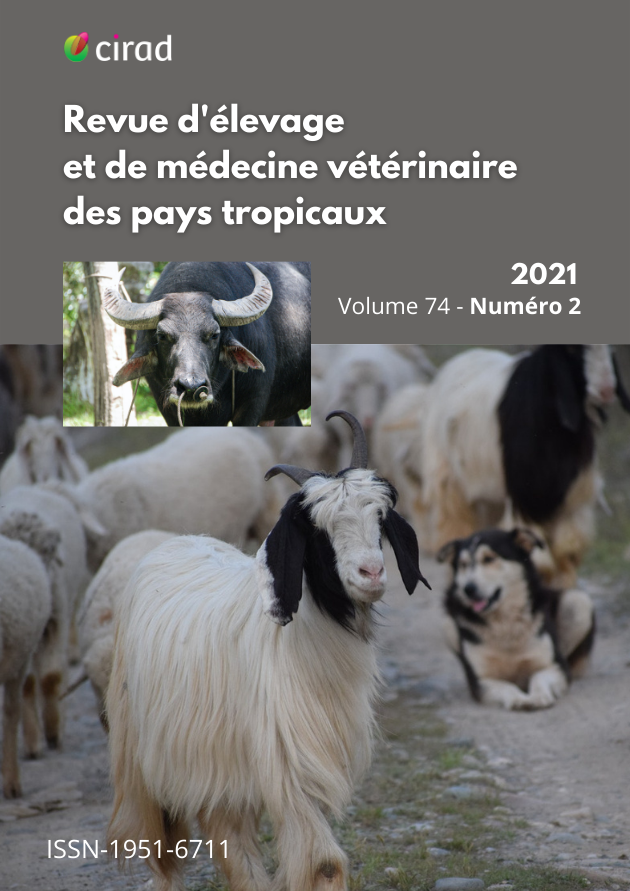Risk factors associated with growth performance and survival of local breed suckling piglets in Benin
DOI:
https://doi.org/10.19182/remvt.36364Keywords
swine, sows, risk factors, land races, production systems, BeninAbstract
In order to identify risk factors associated with the high mortality rate and low growth rate of post-weaning piglets observed on pig farms in Southern Benin, a diagnostic study was conducted on 129 farms in the departments of Oueme and Plateau in 2019, in the form of retrospective surveys and direct observations on these farms. The results showed that the practices of the breeders were mostly traditional, based on the local breed, and confining the animals or letting them roam. The main risk factors related to the status of the breeders were their average age of 42–45 years (higher than the economically active age of farmers), and the fact that they had almost no training and a low educational level. The main risk factors related to reproduction practices were roaming, inbreeding between boars and breeding females, non-compliance with housing standards for pregnant and lactating sows, lack of sanitary measures and preventive and curative care for breeding females and newborns, non-compliance with animal production standards for feeding breeding females, and lack of assistance to the sow during farrowing. In this context, the main causes of mortality were cannibalism, various accidents, lack of milk, crushing of piglets and diseases. The sows had difficult farrowing and agalactia-mammitis syndrome. In piglets, diarrheas, conjunctivitis, sores and low birth weights were most often reported. Consideration of these factors and the definite potential of local Beninese pig farms will help improve the reproductive management system, and thus productivity.
Downloads
Downloads
-
Abstract1110
-
pdf (Français)704
Published
How to Cite
Issue
Section
Categories
License
© A.M.Agbokounou et al., hosted by CIRAD 2021

This work is licensed under a Creative Commons Attribution 4.0 International License.






